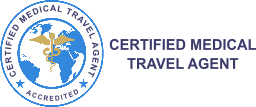Over the years, the health tourism industry has grown significantly. The rapid growth of cost-effective international healthcare and quality medical care abroad has increased the demand for medical tourism in the most unlikely places. People worldwide are now keenly traveling to other countries for medical treatments that are either too expensive or unavailable in their home country.
Let’s look at some important things you need to know about medical tourism:
Medical Tourism History
The first documented health and wellness travel event occurred thousands of years ago when Greek pilgrims moved throughout the Mediterranean towards Epidaurus, a minor territory in the Saronic Gulf. The area was considered the home of Asclepius, the god of healing. Epidaurus was visited by thousands of people each year seeking relief from fever, bone problems, heart ailments, skin disease, and many other illnesses.
The Cost of Medical Care
Twenty years back, it seemed unlikely that citizens from wealthy countries, like the US, would travel to developing countries for medical treatment. However, things are different today because of the skyrocketing medical costs, making it difficult for citizens in certain countries to get medical treatment locally. Even those with health insurance choose to travel elsewhere because it’s more affordable to get medical treatment internationally, especially for procedures like cosmetic and dental surgery, which can be performed at a fraction of the cost overseas.
For example, hip replacement surgery costs around $45,000 in the United States, $15,000 in Britain, and $14,000 in Germany. However, the same procedure would cost about $7,000 in India and around $17,000 in Thailand.
Research shows that the idea of significant cost savings drives roughly 80 percent of medical tourists.
Medical Care Standards and Patient Safety
Besides affordability, another reason for the immense popularity of health tourism is the high quality of care that patients can obtain at international hospitals and clinics. Many overseas hospitals are staffed with doctors who have studied and acquired training from countries like the UK, France, Germany, and the US, who bring their expertise back to their home countries. Additionally, to ensure top-quality care in hospitals, numerous international healthcare organizations have started to enforce quality and patient safety standards through a system of accreditation from organizations like JCI and ISO. JCI, also known as Joint Commission International, is an independent body that evaluates and surveys hospitals worldwide. We will discuss this more later on.
Availability
Another reason why medical tourism is expected to grow and flourish in the upcoming years is because of the availability factor. Some procedures like stem cell therapy and certain types of heart valve transplantation are still considered experimental making them ineligible for medical insurance coverage in European countries and the US. However, these procedures are readily available internationally at affordable prices. In Bangkok, adult stem cells are used to repair the damaged tissues of the heart, while undifferentiated immune cells are used in Singapore for creating personalized cancer treatment therapies. Both of these stem cell therapies have strong track records, and the support from their local government backs them.
Travel Opportunities
Although the primary motivation to travel internationally is medical treatment, it also offers the opportunity for medical tourists to visit exotic destinations. Medical tourists can enjoy a relaxing recovery in a beautiful resort setting after the surgery or treatment, and if the surgeon allows patients to move, they can enjoy outdoor attractions too.
No Long Waiting List
Getting treatment abroad allows patients to avoid long waiting lists! Patients can quickly get treatment outside of their country and get it immediately without waiting in long lines and having to reschedule the procedure. Waiting lists for common surgeries can extend to a year in the UK and Canada. However, most medical surgeries can easily be conducted within a few days in any medical tourism hub with a well-planned tour.
Attracting Medical Tourism Clients
Many popular medical tourism destinations have dedicated significant human and monetary resources to advance their healthcare standards in hopes of attracting the maximum amount of international patients. As a result, millions of people from all over the globe make medical trips to these destinations to enjoy their premium health services. Countries like Turkey, India, Taiwan, Colombia, Malaysia, and many more are going the extra mile to make patients and their families comfortable by offering first-rate accommodations.
Dentistry is Potentially the Biggest Saver
Did you know that patients can enjoy massive savings on dental work in countries like Costa Rica, Mexico, Colombia, Turkey, Hungary, and other medical tourism hotspots? 50 to 80 percent savings are standard in destinations like these, along with excellent facilities.
Some countries are known for their low-cost dentistry and beautiful landscapes. These factors make going abroad for a dental treatment more of a vacation because the patient can have the procedure and tour the country afterward, saving money compared to what they would be spending in their home country.
Brand Affiliation and Credibility
Since you are a new business, especially if you’re working out of your residence, your clients will likely make up their minds about you through your website. Trust is essential in this industry since the client is placing their lives in your hands. One way to build this trust is through brand affiliation. It would be best if you were a member of a professional organization in your industry and affiliated with accredited hospitals and other businesses and have their logos on your website as proof of quality and legitimacy.
Are you looking to grow or launch a health tourism agency? Contact us today.
Email: Info@MedicalTourismBusiness.com
Tel/WhatsApp: +1 561-909-7178








